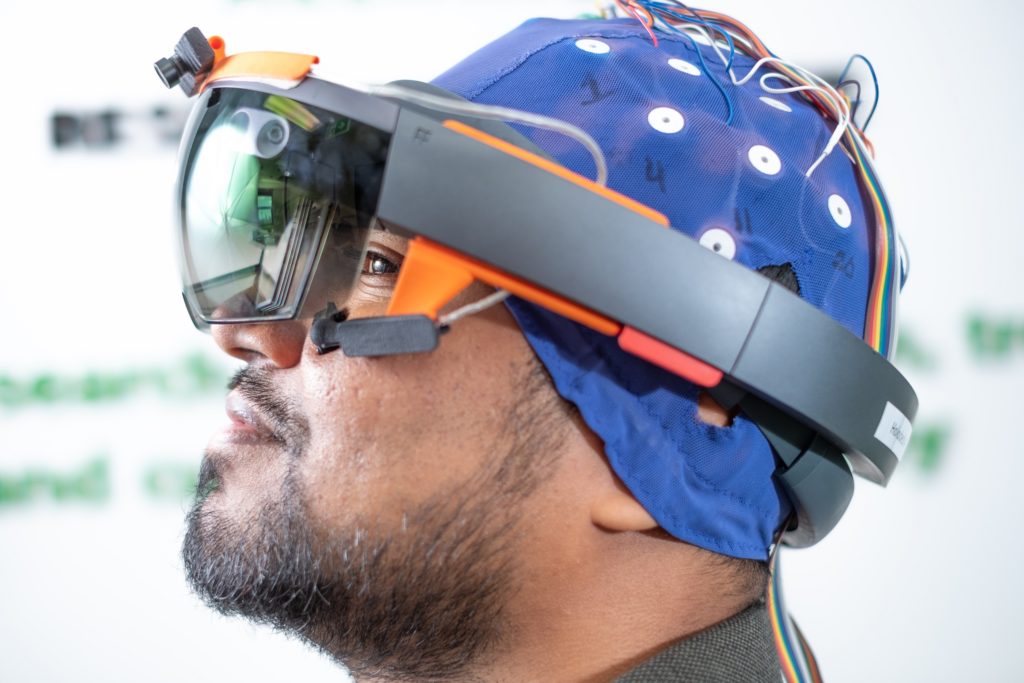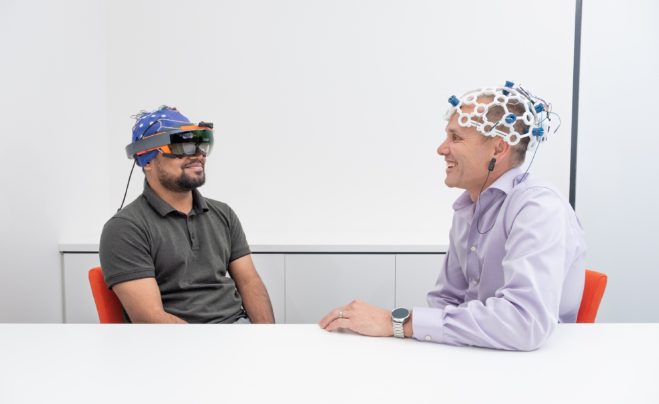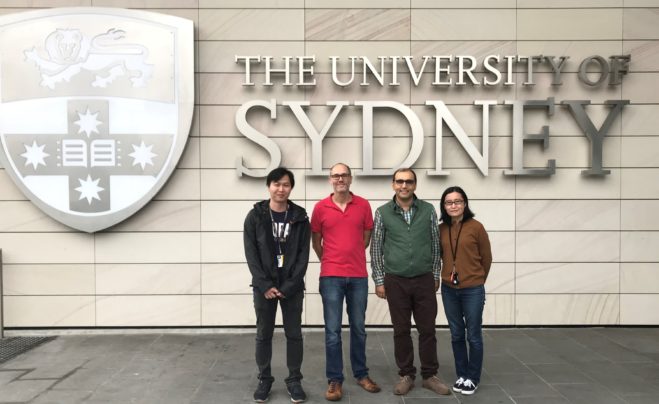
University of Sydney receives AI for Accessibility Grant from Microsoft
Seizure warning system for people with epilepsy
The University of Sydney’s Faculty of Engineering and Information Technologies has been awarded an AI for Accessibility grant from Microsoft to support its efforts developing solutions that improve the independence for people living with epilepsy.
There are approximately 250,000 people living with epilepsy in Australia and 65 million worldwide. Epilepsy and the unpredictably of the recurrent seizures, can impact the independence and confidence of people living with the disease.
While many people effectively manage the condition with their first or second anti-epileptic drugs, if it fails to be treated, the chance of response to further drugs is significantly diminished, leaving about 30 percent of patients with drug resistant epilepsy.
This means many people are faced with few choices which allow them to effectively manage their debilitating condition. There are also legal restrictions that can impact their job prospects and independence, for example understandably preventing many with epilepsy from even holding a driver’s license.
This grant will help the University to accelerate its work on a seizure advisory system for adult individuals diagnosed with epilepsy who want or used to drive a vehicle.
The system, NeuroSyd, aims at real-time monitoring and processing of brain-signals while driving, in a group of people living with epilepsy. NeuroSyd will be developed to deliver an early warning of the likelihood of an epileptic seizure strike.
Electrical engineering expert from the University of Sydney’s Faculty of Engineering and IT, and Deputy Director of Sydney Nano Institute, Dr Omid Kavehei, hopes the technology brings independence to those living with epilepsy.
This research project is designed to provide a greater degree of independence to a specific cohort of individuals living with epilepsy, that will help better manage against the seemingly unpredictable nature of seizures.
Combining data science, Microsoft’s AI and machine learning resources and the University’s expertise in electronics and biomedical signal processing, the device will help detect brain activity that foreshadows an epileptic seizure, taking measures to possibly avoid consequences associated with unpredictability of a seizure.
The University of Sydney is partnering with the Royal Price Alfred Hospital and the Cerebral Palsy Alliance of NSW on the research project.
David Masters, Accessibility lead, Microsoft Australia, said; “The potential of this research is incredible. Using state of the art AI and machine learning and current and historical data on brain activity, the team hopes to create a portable, non-surgical device that can provide someone with up to 30 minutes’ warning about a likely seizure.
“The potential positive impact of this research on the independence of people with epilepsy is exactly the kind of outcome Microsoft’s AI for Accessibility program was designed to achieve. Microsoft sees massive potential from AI to empower people with disabilities and bringing our technology, expertise and training to bear through the AI for Accessibility program has already seen some amazing potential applications that could improve people’s daily lives and employment opportunities.”
AI for Accessibility is Microsoft’s $US25 million 5-year program aimed at harnessing the power of AI to amplify human capability for the more than one billion people around the world with disabilities.
It’s a call to action for developers, NGOs, academics, researchers and inventors to accelerate their work for people with disabilities, focusing on three challenges: Employment, Daily Life and Communication and Connection.
Through grants, technology, and AI expertise, the program aims to accelerate the development of accessible and intelligent AI solutions and build on recent advancements in Microsoft Cognitive Services to help developers create intelligent apps that can see, hear, speak, understand and interpret people’s needs.
Please visit the AI for Accessibility website and https://sydney.edu.au/news-opinion/news/2018/05/30/prediction-method-developed-for-epileptic-seizures.html for more information.
















